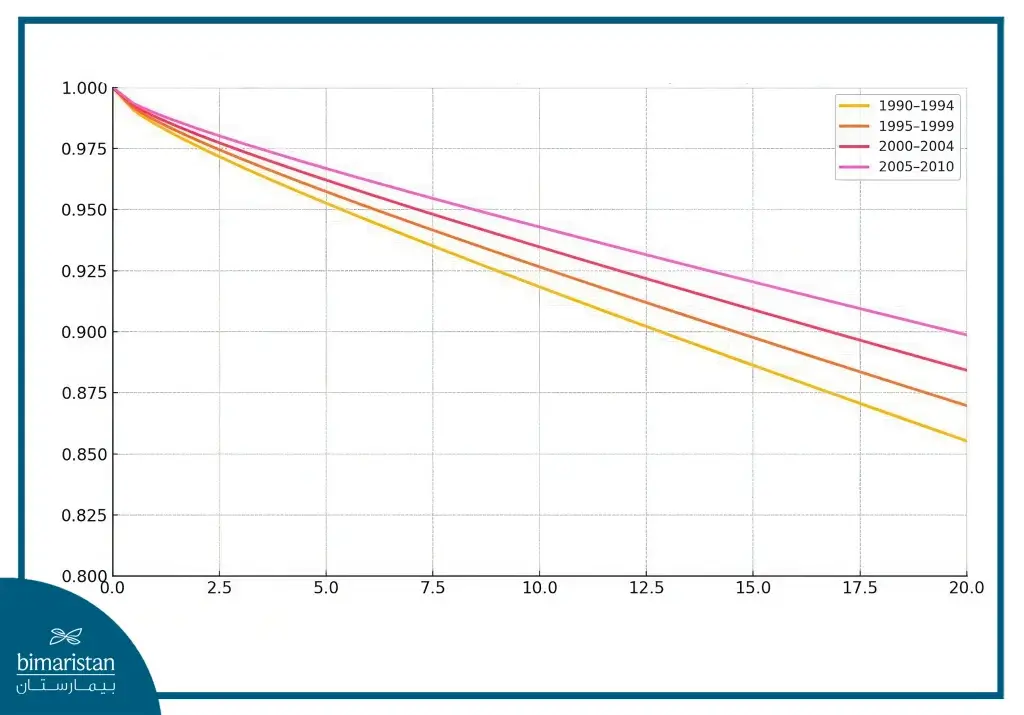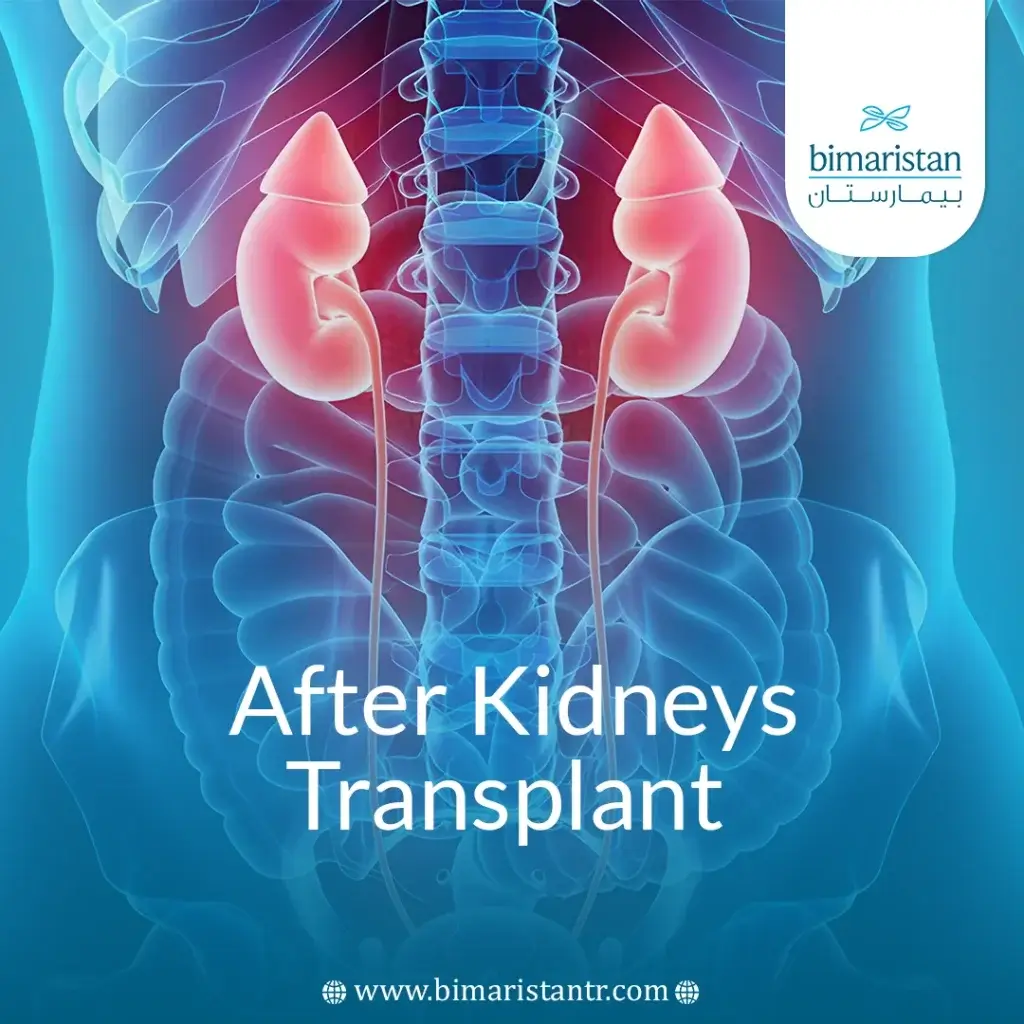After a kidney transplant, the damaged kidney is replaced with a healthy kidney from a living or deceased donor. This surgical procedure is considered one of the most effective solutions for advanced kidney failure, a condition in which the diseased kidney can no longer perform its vital functions, such as filtering waste products and excess fluids from the blood. After a kidney transplant, the primary goal is to restore normal kidney function and significantly improve the patient’s quality of life, allowing them to return to daily activities with better health and vitality.
What is a kidney transplant?
Kidney transplantation is a complex operation that requires compatibility between the donor and the recipient in blood type and body tissues to ensure the success of the transplant and avoid rejection of the transplanted organ. The operation is performed under general anesthesia, and the kidney is transplanted in the lower part of the abdomen. The blood vessels of the transplanted kidney are connected to the patient’s vessels to provide the necessary blood flow, while the ureter is connected to the bladder to ensure the exit of urine. After the surgery, the patient needs careful medical follow-up and immunosuppressive medications to minimize the risk of rejection.
After a kidney transplant care: The basics
After a kidney transplant, patients face an important phase of post-operative care to ensure the success of the transplant. This phase relies on several key aspects, from monitoring vital functions to ensuring the health of the transplanted kidney is stabilized.
Monitoring vital functions
- Blood pressure: Controlling blood pressure is critical after transplantation, as high blood pressure can have negative effects on the transplanted kidney, so blood pressure should be monitored periodically.
- Heart rate: It is important to monitor your heart rate to make sure there are no circulatory issues.
- Temperature: The patient’s temperature should be monitored regularly, as fever can indicate an infection or issue with the transplanted kidney.
- Kidney function: Regular blood tests are done to check creatinine levels, and urinalysis is also an essential part of monitoring the function of the transplanted kidney.
Immunomodulatory drugs
Immunosuppressive medications are an essential part of post-transplant care. These medications help prevent the immune system from rejecting the transplanted kidney, so patients are advised to strictly follow their doctor’s instructions regarding dosages and timing to minimize any side effects.
- Immunosuppressive medications: Such as cyclosporine, which prevents the immune system from reacting to the transplanted kidney.
- Antibacterial and antifungal medications: To reduce the risk of infections that may attack the body as a result of reduced immunity.
Monitoring the health of the transplanted kidney
- Screening of the transplanted kidney: The transplanted kidney is checked through blood tests and radiographs periodically for early detection of any issues that may occur.
- Signs of rejection: The patient should be aware of the signs of kidney rejection, such as pain in the transplant area, swelling, and a change in urine color or decrease in urine volume.
Health challenges after a kidney transplant
Acute rejection of agriculture
One of the most important challenges that patients can face after a kidney transplant is acute rejection of the transplant, acute rejection occurs when the immune system recognizes the transplanted kidney as a foreign body and attacks it, usually the symptoms of acute rejection appear in the first days after surgery and include pain in the transplanted area, fever, and loss of the kidney’s ability to function normally and patients need to carefully monitor these symptoms and go to the hospital if they occur.
Possible complications after a kidney transplant
In addition to acute rejection, there are several other complications that may occur after a kidney transplant, including:
- Infections: Due to immunosuppressive medications, patients are more susceptible to infections. Infections that may occur after a kidney transplant include urinary tract infections, pneumonia, and skin infections.
- Blood clots: Some patients may experience blood clots in the blood vessels surrounding the transplanted kidney.
- Urine leakage: There may be some issues with urine leakage from the transplanted kidney, requiring surgical intervention to correct the situation.

Diet after a kidney transplant
Appropriate diet is one of the most important aspects of post-transplant care, as a balanced diet helps promote the health of the transplanted kidney and minimize health complications, so patients are advised to follow a diet rich in vitamins and minerals while avoiding foods that may affect kidney function or increase stress on the body.
- Recommended foods: It is beneficial to eat protein-rich foods such as lean meats, fish, and eggs, and it is also recommended to eat fresh fruits and vegetables that contain vitamins and minerals that are essential for the health of the body.
- Foods to avoid: Patients are advised to minimize the intake of salty foods that may lead to high blood pressure, as well as foods with high levels of potassium and phosphorus, such as bananas, tomatoes, and canned foods.
Exercise and physical activity after a kidney transplant
One of the most important aspects to consider in the post-kidney transplant phase is returning to physical activity gradually, as proper exercise helps boost blood circulation, strengthen muscles, and improve overall health, but patients should avoid strenuous activities in the first few months after surgery.
- Permissible exercises: Walking is one of the appropriate exercises that the patient can do in the post-operation period, and muscle strengthening exercises can also be started gradually under medical supervision.
- Activities to avoid: Highly strenuous activities such as weight lifting or prolonged running should be avoided, as these activities may increase the pressure on the transplanted kidney.
Psychological guidance and emotional support for the post-kidney transplant patient
After a kidney transplant, patients should receive psychological support to help them adjust to the physical and emotional changes that may occur, as transplantation can be emotionally stressful, especially if there are any complications or delays in the response of the transplanted kidney.
- Dealing with anxiety and depression: Many patients feel anxious or depressed due to the changes in their lives after transplantation, so psychological support sessions are recommended to deal with these feelings and adapt to the new situation.
- The role of family and community: Support from family and community plays a big role in improving the patient’s psychological state. By providing emotional support and constant encouragement, patients can overcome the psychological challenges they may face after a kidney transplant.

Follow-up of the patient in the later stages after the transplant
Regular medical follow-up after a kidney transplant is crucial. Regular visits to doctors help in the early detection of any issues that may occur after the operation.
- Medical visits: Patients should commit to frequent medical visits that include a kidney function test and blood tests to check the levels of creatinine and other substances in the blood.
- Ongoing guidance: Doctors are given ongoing guidance on how to manage medications, proper diet, and exercise after the procedure.
After a kidney transplant, the post-transplant phase is crucial to ensure the success of the operation and the continued health of the transplanted kidney. Through constant monitoring, regular medication, and maintaining a healthy diet, the patient can safely return to normal life. It is also important to get psychological support from the family and the medical community to deal with any challenges that may arise. Adherence to medical guidelines and regular follow-up increases the chances of a successful transplant and a safe and healthy return to daily life.
Sources:
- Kidney transplant. National Institute of Diabetes and Digestive and Kidney Diseases. Retrieved July 30, 2025,
- NHS Blood and Transplant. (n.d.). Kidney transplant. NHS Blood and Transplant. Retrieved July 30, 2025,

